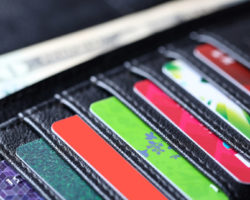Is your current credit card the right credit card for you? You probably already asked yourself this question. You’re not the only one. Millions of Americans are also wondering the same thing. People change, and their needs also change. Faster than you might think. What was once great for you, can now be annoying. So what should you do? Should you just change your credit cards just like you change your insurance policy? The short answer is “Yes.”
Being unhappy with your credit card isn’t something new. Many people are. Or maybe you’re not unhappy, but you feel that it doesn’t really help you. Again, many people don’t know which credit card is best for their spending styles, you’re not alone. And things are made worse by the fact that the credit card market is full of many different types of credit cards. You have varying APRs, cash back, points, miles, 0% interest periods, and numerous other features. So many that it’s in fact hard to choose from. This can be a problem but it can also be good for you. Having so many options to choose from means that you can satisfy all your needs.
Why you shouldn’t change credit cards too often
It’s good to have a lot of options to choose from, but is it good to change cards whenever you feel like it? Probably not. It’s because your credit score is affected. If you keep closing old accounts and opening new ones, your credit score will drop. There is no doubt about it. It happens every time and you can’t avoid it.
Keeping the old card and getting a new one won’t help you either. Every time you open a new account, your credit score drops, because you both lower your average credit age and an inquiry is placed on your credit report.
Unfortunately, you need your credit score to be in tip-top shape. If it’s bad, you’ll have trouble getting new cards, or the loans that you want.
Your credit score is important, but what if it’s not?
Your credit score is important when you’re fresh out of college and looking for a new card. It’s important when you want to buy a home and are looking to get the best rates possible. But it’s not important if your mortgage is paid and you own your home, if you have no debt, and if you’re doing really well financially.
In fact, being wealthy and having no debt is a lot better than having a great credit score. And many millionaires have average or poor credit scores. Why? Because they probably don’t care if they pay their credit cards on time, or even because they don’t use credit cards.
Your credit score is just a tool that lets your lenders know how good you are at paying what you owe. It shows them how big a risk you are. However, a good credit score doesn’t necessarily mean that you’re financially stable. Having no debt does that.
Credit is debt
The thing about credit cards is that they bring (more) debt into your life. Currently, most millennials run away from plastic. They refuse to get credit cards, even though this can prevent them from improving their credit scores and make it a lot more difficult to get a good mortgage or a good loan later in life. But they still do it, because they already have debt in their lives. Student loans are a big burden and millennials know it. The last financial crisis showed them what having a lot of debt can do to you, and they’re fighting to avoid those situations.
Advantages of credit cards
There is life without plastic. No one can deny that. But also can’t deny the perks that come with having a credit card. You can shop faster, you can shop online, you can get rewards, and so much more. It’s because of these perks that many people even get credit cards in the first place. And why not? If you travel a lot, using a credit card to pay for tickets can help you get free tickets at some point in the future. So you save some money. And saving money is always a good thing.
Credit cards have both pros and cons. If you want to get one, you should just get a piece of paper first and write down these pros and cons. See what you’re OK with and what upsets you and, afterwards, decide.
Changing your credit card
Making lists of pros and cons can also be helpful if you want to get a new card. If you feel that your current card is useless and that a new one can serve you better, write down what you want and what you don’t want, and, afterwards, go out shopping.
If you don’t really care about your credit score, there’s nothing to stop you from getting the card that you want, and changing credit cards as often as you want. And, yes, it’s no problem if you close your account. This does affect your score, but so does not using a credit card for a very long time.
Keeping a credit card in your wallet and only using it once a year, in the hope that it helps your credit, doesn’t really matter if your credit score doesn’t matter to you. You might even get in trouble if you use it and then forget to pay what you owe.
In such a situation, it’s a lot better to close the account and get that new card that better suits your needs. And, when you don’t need that card anymore, close the account and change it with another.
Your credit score will recover
If you keep changing credit cards, your score will drop. But it can bounce back, especially if you make sure that you pay everything you owe on time. Remember, having debt is much worse than having a low score.
You are free to do what you want
Don’t let anyone tell you what you can or can’t do. If you want to get rid of a credit card and get a new one, just do it. But remember to be responsible about it. A credit card can be a very useful financial tool, but it can also hurt you if you’re not careful.









